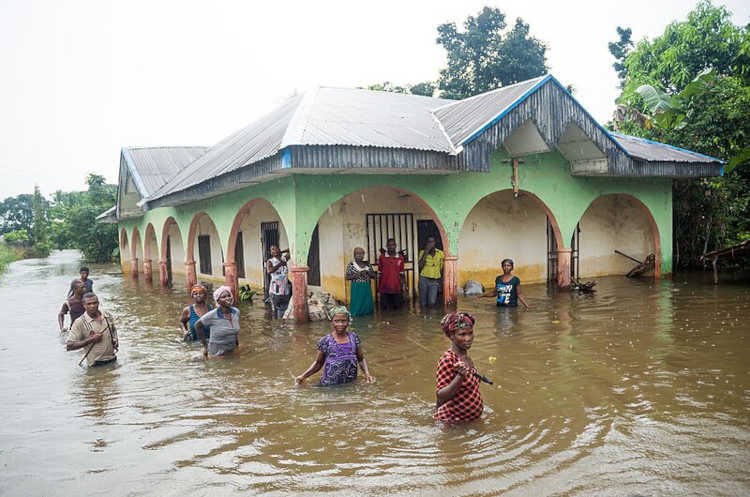With the recent announcement of 148 flood-prone areas across Nigeria, an urgent and inclusive response needs to be implemented by the government, both at the federal and state levels.
Development Diaries reports that the Minister of Water Resources, Joseph Utsev, warned that the areas, which are in 31 states of the federation, fall within the high flood-risk areas.
Utsev listed the high flood-risk states as Adamawa, Akwa-Ibom, Anambra, Bauchi, Bayelsa, Benue, Borno, Cross River, Delta, Ebonyi, Edo, Imo, Jigawa, Kaduna, Kano, Katsina, Kebbi, Kofi, Kwara, Lagos, Nasarawa, Niger, Ogun, Ondo, Osun, Oyo, Plateau, Rivers, Sokoto, Taraba, and Yobe.
In light of this warning, it becomes imperative for the government and relevant stakeholders to take proactive measures to mitigate the potential impact of floods.
Figures from the National Emergency Management Agency (NEMA) reveal that floods affected over four million Nigerians in 2022.
The agency also revealed that at least 33,983 persons were affected by flooding in 2023.
In order to prevent similar outcomes, there have to be measures put in place by the state emergency agencies in the aforementioned states.
First, it is necessary to launch extensive public awareness campaigns to educate residents in flood-prone areas about the risks and necessary precautions. These campaigns should include information on evacuation procedures, emergency contacts, and steps to minimise property damage.
The various state governments must also prioritise investment in infrastructure projects like proper drainage systems to strengthen flood defence.
There is also a need to develop comprehensive disaster preparedness plans at the local, state, and national levels, which should outline evacuation routes, shelter locations, and coordination mechanisms between government agencies, emergency services, and non-governmental organisations (NGOs).
This warning also calls for financial preparedness among states. There is a need to allocate adequate financial resources for disaster risk reduction and response efforts.
This begs the question: how are states utilising ecological funds given to them by the federal government to tackle ecological issues like flooding?
A recent report by Punch revealed that political interference with the allocation of ecological funds is inhibiting the country’s efforts to tackle flooding.
According to information released by the National Bureau of Statistics (NBS), 774 local government councils and 36 states of the federation got N8.4 billion in ecological payments in January 2023.
Even though states and local governments were allocated approximately N64.417 billion between 2021 and 2022, these funds have not been accounted for, unfortunately.
Development Diaries calls on the state emergency agencies in the aforementioned states and the various state governments to act swiftly and decisively to safeguard vulnerable communities and build resilience against future flood events.
Photo source: Hansel Ohioma







